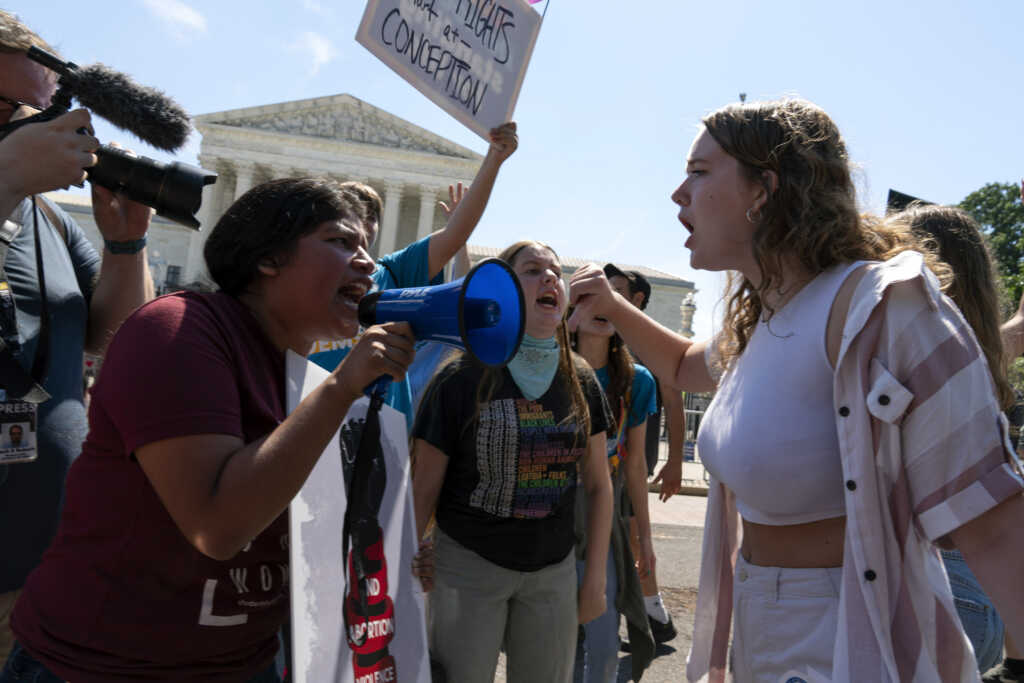Constitutional law expert and professor Brad Jacob believes Roe v. Wade was never viable law and that the U.S. Supreme Court’s Dobbs v. Jackson Women’s Health Organization ruling on Friday overturning nationalized abortion righted that wrong.
Listen to CBN News’ brand new morning podcast, Quick Start 👇
“The Dobbs case says what the Supreme Court should have said back in 1973, which is that the United States Constitution doesn’t say anything about the issue of abortion,” Jacob told CBN’s Faithwire. “It’s simply not a constitutional issue and the states are free to regulate anyway that they want to, as long as it’s reasonable.”
Jacob said it’s important to understand that all of the Supreme Court justices — liberal and conservative, alike — are working “in good faith,” but that there’s a deep divide over how they view the Constitution.
One side in previous abortion cases looked for a way to find rights to the procedure in the Constitution, but the contemporary court found the “document doesn’t protect abortion,” a fact with which Jacob agrees.
Watch the professor explain:
Jacob, who teaches constitutional law and foundations of law at Regent University School of Law in Virginia Beach, Virginia, also debunked one of the points of confusion among some pro-choice Americans surrounding the impact overturning Roe will have on the legality of abortion.
“This isn’t going to make abortions illegal in New York or Massachusetts or California — the places that want to protect abortion,” he said, noting that those states will still permit it; others will not. “It’s now purely a state law policy decision.”
He said a patchwork of abortion laws will likely develop, with different states enacting differing restrictions as well as exemptions. Jacob said protection for the life of the mother is the one exemption that would most likely be universally permitted.
“Life of the mother, I think, will always be an exception if the mother is in danger of dying,” he said. “I don’t know that anyone wants to force her to carry the pregnancy and die if that’s the … horrific choice that family has to make.”
While some are worried the Dobbs ruling could impact past cases surrounding gay marriage and other issues, Jacob said abortion is a unique issue as it deals with an “innocent person whose life is at stake.”
These other issues and cases simply do not raise to the same standard, he said.
“Even if the court believes that those cases were wrongly decided, there’s a lot less reason for them to feel that they need to go back and change those rulings,” he said.
As for those who argue against Dobbs on the grounds that it purportedly violates the will of the people, Jacob made an important distinction: abiding by the people’s views isn’t the role of the Supreme Court.
“It’s not the job of the Supreme Court to respond to the will of the people as expressed in public opinion polls or in people standing outside the court or outside the justices’ homes protesting and attempting murder,” he said. “Their job is to apply the law… they’re not supposed to be swayed by public opinion. They are supposed to say, ‘Here’s the law. Here’s how that law applies to the case in front of us.'”
Jacob said if citizens disagree, they can vote for candidates in the legislature who can change the laws, as that’s the branch of government that is “supposed to be responsible to the will of the people.”
Watch all of his arguments here.
***As the number of voices facing big-tech censorship continues to grow, please sign up for Faithwire’s daily newsletter and download the CBN News app, developed by our parent company, to stay up-to-date with the latest news from a distinctly Christian perspective.***



